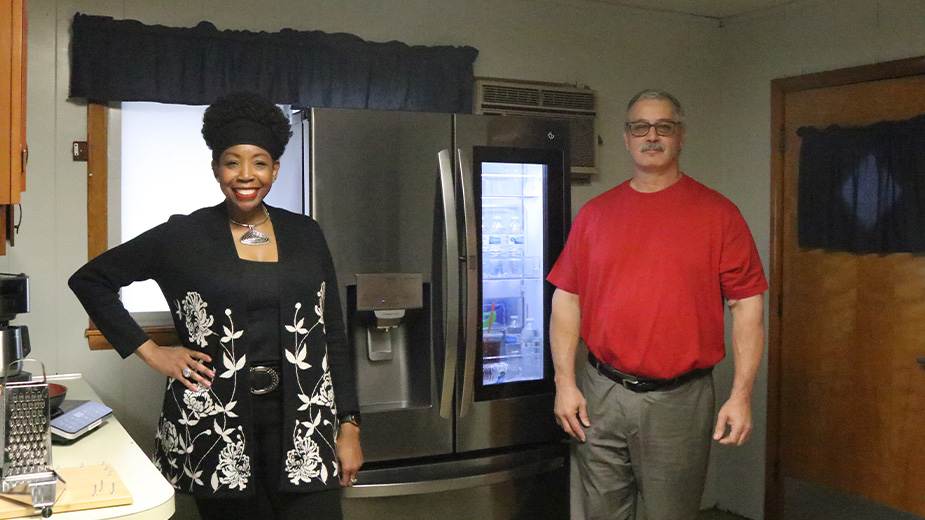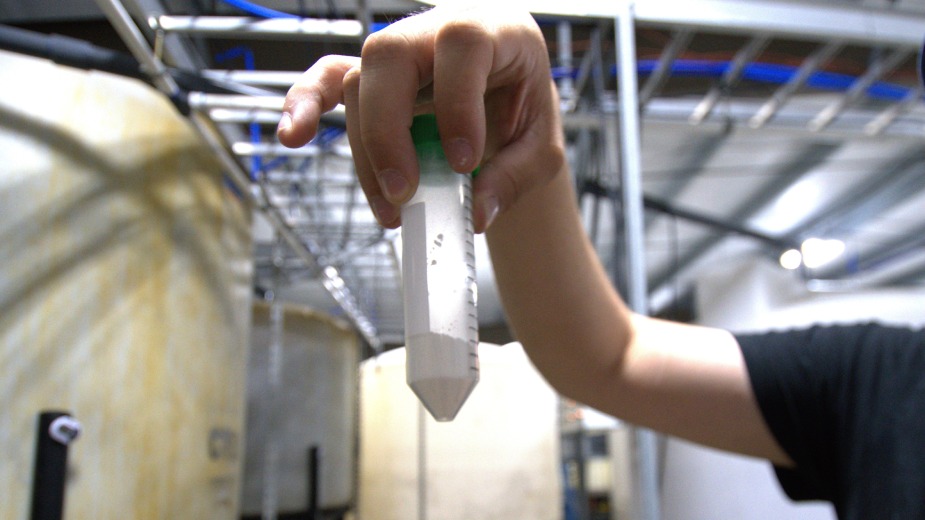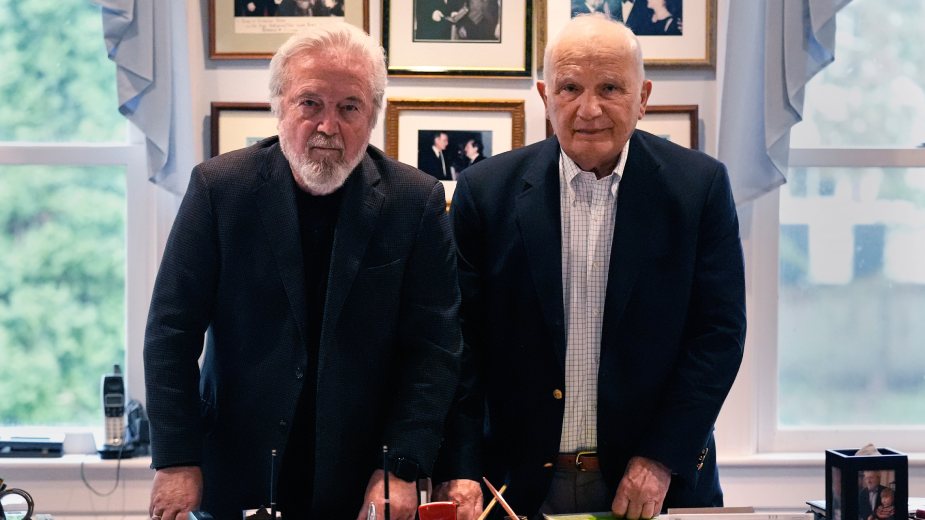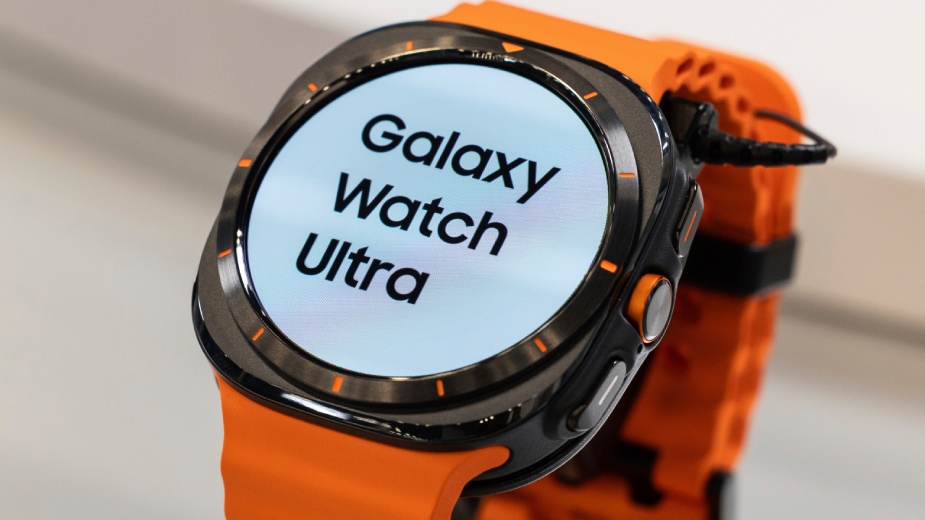Tech House Showcases Devices for Independent Living
BOARDMAN, Ohio – From gadgets that close and lock the door behind you to radios that connect the vision impaired with local news, advancements in technology have made lives easier, especially for those overcoming a disability.
A tech house set up by the Mahoning County Board of Developmental Disabilities demonstrates how much help technology can provide to those wishing to live more independently.
Service and support administrators from the MCBDD research technology designed to improve the lives of the elderly, latchkey children, veterans and those with disabilities. They then incorporate the best items they have found into the tech house.
“We created the tech house because we realize individuals want to become more independent, worry about safety – so we were focused on them seeing what is available out there,” said Ashley Carocci, one of four MCBDD service and support administrators involved in the house. “You don’t know what you don’t know, so until you do see or do hear about it, how would you know it’s something that could possibly benefit you.”
George Gabriel, service and support administrator supervisor for the MCBDD, said there are now more than 200 items in the home, which started out with about 25 items in his office.
“Several years ago, Ohio became one of the technology-first states in the country,” Gabriel said. “The idea was just to start getting a sense of using technology to increase independence, so you had less reliance on staff.”
The more they researched and as grant money became available, the more items Gabriel and the service and support administrators have been able to add and demonstrate in the home.
Much of the house is controlled by Alexa, which can start the microwave for a certain amount of time without hitting the buttons, turn the lights on and off and even open and close the blinds.
An automated faucet and spill indicator on a glass will let a person with visual difficulties know when the glass is getting full.
One of the favorite tech items of Carocci’s is PenFriend, a device that allows someone to program stickers and magnets to audibly give the directions or any other information someone chooses. For instance, a magnet on the top of a can of food can be programmed, so when someone touches the PenFriend, it recites the temperature and cooking time for the food inside. Stickers on a closet of clothes hangers could be programmed to let someone with color blindness know the hue of the garment.
The PenFriend can be used to leave messages for someone who does not read, or an employee who needs to hear multistep directions multiple times. It can be used and reprogrammed an endless number of times.
Jeannine Baker, another service and support administrator, showed weighted blankets, vests and other sensory items in one room – items designed to calm someone with anxiety.
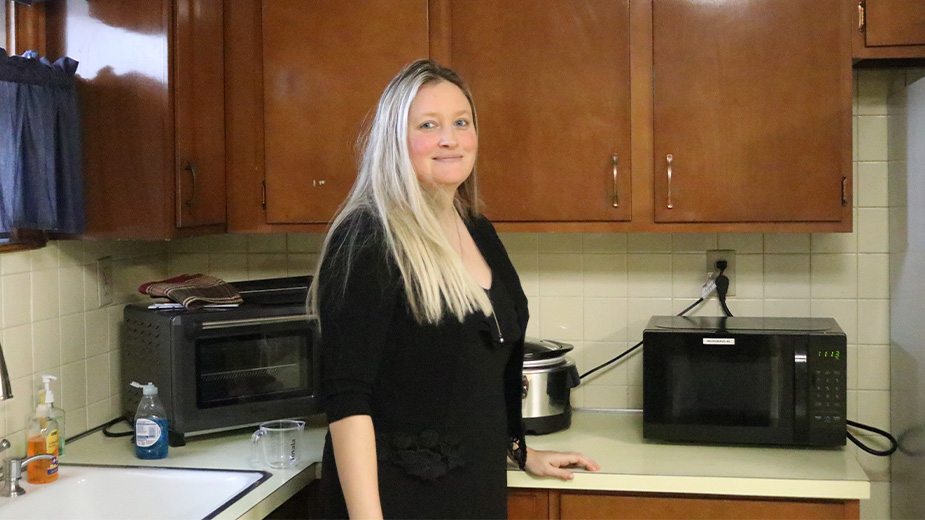
Doors can be coded for those who cannot use a key. A mat placed next to a bed can alert a caregiver when someone has gotten up. A monitor on the toilet can count how many trips to the bathroom someone has made during the night. A device can read currency, helping someone differentiate between the bills in their wallet. A variety of med minders can be found in the house, from the simpler variety to high-tech devices.
At the push of a button, someone can be contacted at a remote location for an emergency or even a nonemergency.
“We try to picture somebody coming home, even at night, being by themselves. What can they use?” Gabriel said.
The program has been funded through two Ohio Department of Developmental Disabilities grants – one for $20,000 and a second for almost $17,000 – as well as funding from the Educational Service Center and donated items from organizations or companies that would like to see their items demonstrated in the home. Some items can be obtained through funded sources, and everything in the home can be ordered.
Multiple other counties, agencies, physical therapists and those who help those with disabilities have had a chance to tour the home. The Mahoning County commissioners are slated to tour the house later this month.
Anyone can set up an appointment to take a tour of the home by contacting Gabriel at 330 718 4815 or ggabriel@mahoningcountyoh.gov. More information about the tech house can be found HERE.
Pictured at top: George Gabriel, right, Mahoning County Board of Developmental Disabilities service and support administrator supervisor, and Jeannine Baker, a service and support administrator, gave tours of the Tech House in Boardman on Friday.
Copyright 2024 The Business Journal, Youngstown, Ohio.
